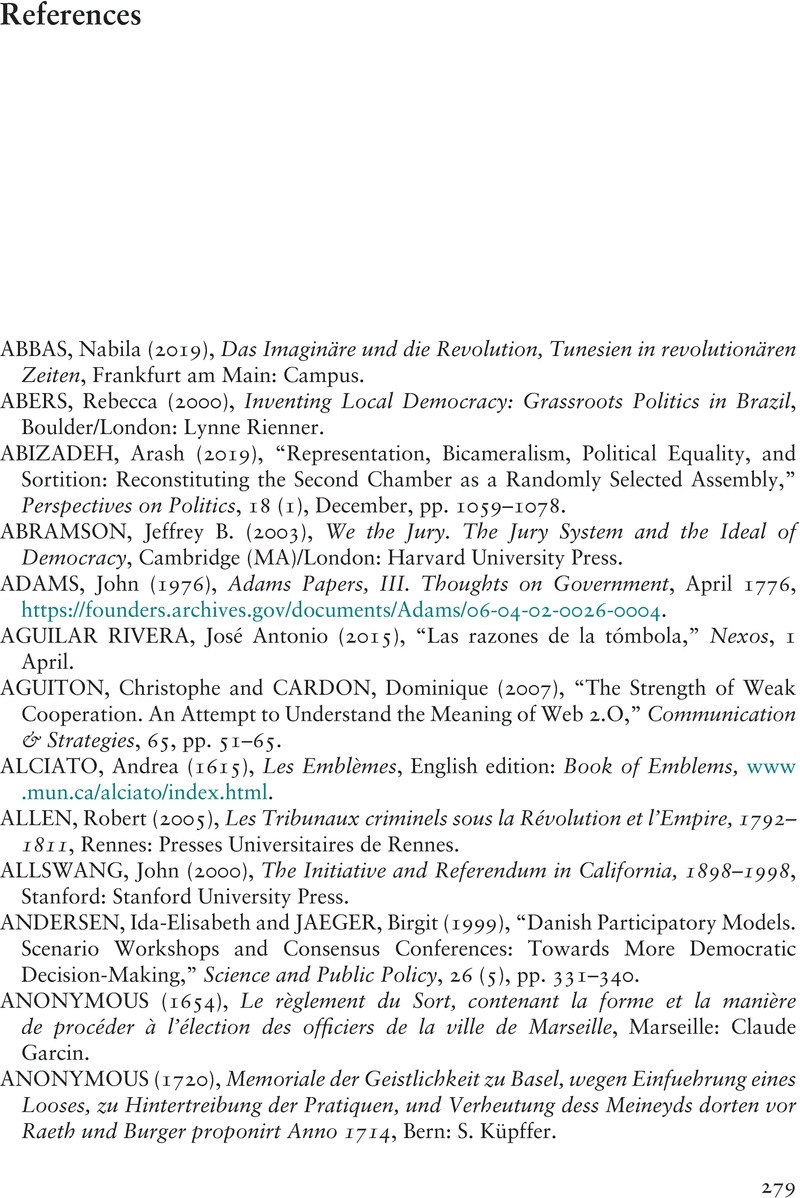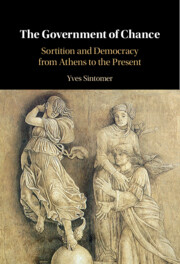Book contents
- The Government of Chance
- The Government of Chance
- Copyright page
- Dedication
- Contents
- Tables
- Acknowledgments
- Note on the Text
- Introduction
- 1 Democracy, Modern and Ancient
- 2 Sortition’s Second Birth in the Middle Ages and the Early Modern Period
- 3 The Disappearance of Sortition in Politics
- 4 The Return of sortition
- 5 Sortition and Politics in the Twenty-First Century
- References
- Index
- References
References
Published online by Cambridge University Press: 18 February 2023
- The Government of Chance
- The Government of Chance
- Copyright page
- Dedication
- Contents
- Tables
- Acknowledgments
- Note on the Text
- Introduction
- 1 Democracy, Modern and Ancient
- 2 Sortition’s Second Birth in the Middle Ages and the Early Modern Period
- 3 The Disappearance of Sortition in Politics
- 4 The Return of sortition
- 5 Sortition and Politics in the Twenty-First Century
- References
- Index
- References
Summary

- Type
- Chapter
- Information
- The Government of ChanceSortition and Democracy from Athens to the Present, pp. 279 - 308Publisher: Cambridge University PressPrint publication year: 2023



